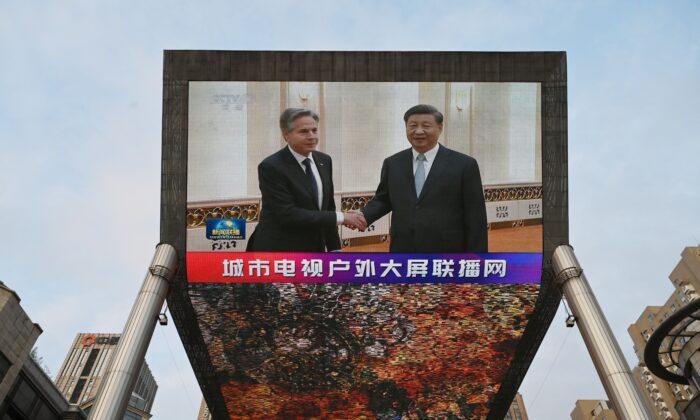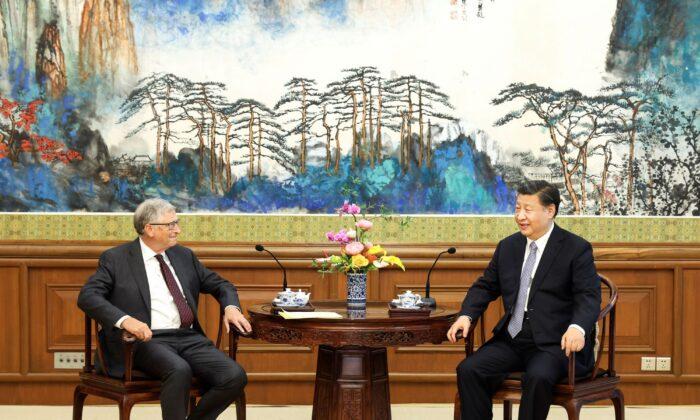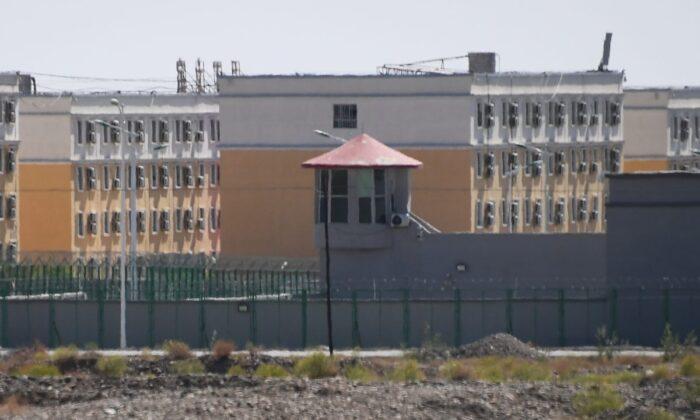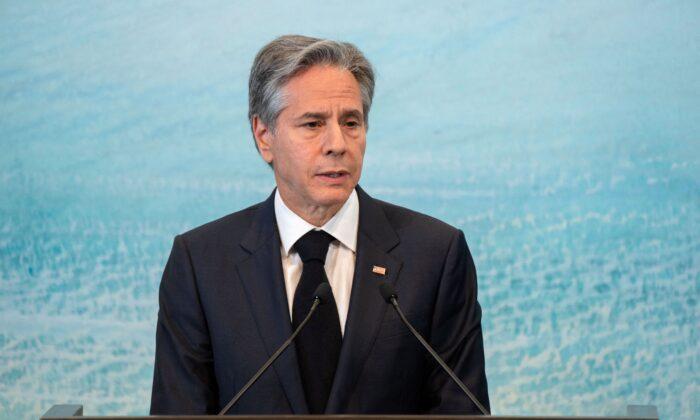The Chinese Communist Party (CCP) has reportedly set up defense mobilization offices across China in recent weeks—signaling that the regime is preparing for war against the United States and its allies, according to China expert and author, Bradley Thayer.
As the director of China policy at the Center for Security Policy and co-author of the book “Understanding the China Threat,” Thayer singled out the Chinese spy balloon that traversed the United States for a week before being shot down on Feb. 4.
“The balloon, to my mind, was a signal: It was not just an intelligence collection operation, but it was a signal that the Chinese Communist Party is not going to leave the American homeland alone,” he said.
“If war comes, they’re going to target the United States, in the United States—the American people themselves.”
Thayer took note of Xi’s recent speech in which he took aim at the United States for the first time, calling it “an alarming development.”
Thayer said the speech was a significant development because the Chinese leader had refrained from mentioning the United States directly in this context—until now.
“It’s a cause of great concern: We’re entering into a dangerous period, a particularly dangerous period in the Sino-American relationship,” Thayer said.
Defense Mobilization
PLA Daily, the official newspaper of China’s People’s Liberation Army, published a commentary recently by Chen Lixin, the director of the mobilization bureau of Shanghai Command. Chen stressed the urgency of China’s build-up of a “defense mobilization” system that “solely exists for war and prepares for war” under the leadership of the CCP.Deter Chinese Invasion of Taiwan
According to Thayer, Xi Jinping has made clear his intention to conquer Taiwan.“That’s one of the ambitions, that’s one of the aims of the Chinese Communist Party, and Xi Jinping certainly seems to realize this in a very near term, the next year, the next year and a half, the next two years,” he noted.
In Thayer’s opinion, Taiwan is important both economically and strategically and, thus, he stressed that the United States needs to deter any move against the island by the CCP.
“To underscore the importance of Taiwan: Taiwan is significant for the West and the rest of the global economy. Certainly economically, because it’s a chip producer, and a very important source of wealth,” he said.
“Secondly, strategically, Taiwan occupies critical geostrategic space: If you will, bottling up the Chinese navy, and serving as a point of attention with China,” he added.
Thayer said he believes that “Taiwan’s existence is a very important symbol of what China could have been and what it someday might be.”
To deter China’s invasion of Taiwan, Thayer urged that the United States beef up its military presence on the island.
“What we should be doing is ensuring that the army, the marine corps, the air force, and the navy have a very strong and robust presence on Taiwan,” he said.
The United States should encourage India, Australia, and Japan, as well as European partners, to deploy forces on Taiwan as well, he said, so that “there’s a very strong conventional deterrent from the U.S. and its allies.”
“Those are very tangible steps that we need to take, because Xi Jinping ... is determined to aggress, he’s determined to impose his will on the rest of the world. And so we cannot take half measures when we’re dealing with that type of leader,” Thayer said.





